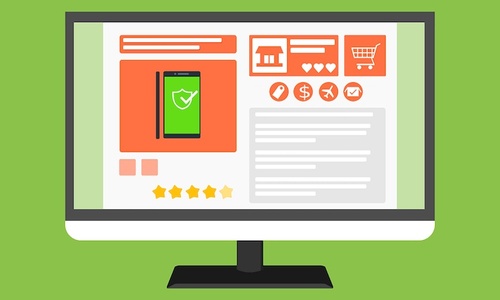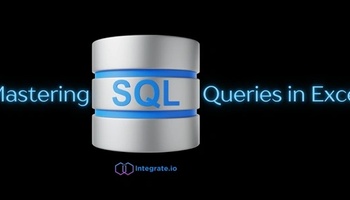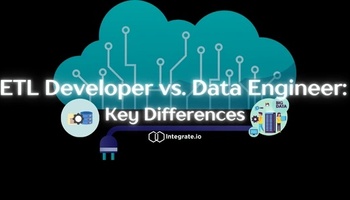Eight components of a strong BigCommerce tech stack are:
- Website builders for customizing your site's front-end.
- Payment gateways for providing a wide range of payment options.
- Marketing tools for attracting new prospective customers.
- Inventory management for tracking product stock levels and orders.
- CRM (customer relationship management) for handling customer interactions with your business.
- ERP (enterprise resource planning) for streamlining and automating business processes.
- Customer support for handling customer queries and problems.
- Data warehousing for business intelligence and analytics.
You've decided to build a BigCommerce store—congratulations! As you know, there's no shortage of e-commerce platforms available, but BigCommerce is one of the most popular options for entrepreneurs looking to start an online store. With a rich array of features and functionality, BigCommerce is an excellent e-commerce platform that's more than a worthy competitor to Shopify, Magento, and WooCommerce.
But even the best e-commerce solution isn't all-in-one software. To properly run an e-commerce store, you'll need a host of third-party apps and integrations for your BigCommerce tech stack.
So which software, tools, and plugins should you consider using to support your BigCommerce deployment? Below, we'll discuss eight options for your BigCommerce tech stack.
Looking for a powerful e-commerce data integration tool for business intelligence and analytics? Get started with Integrate.io's 7-day pilot.
1. Website Builders
Of course, e-commerce platforms are practically useless without a website to run on. BigCommerce already comes with its own e-commerce website builder tool for customizing your storefront: the drag-and-drop Page Builder editor. However, businesses may also decide to use their own third-party website builder, such as WordPress, Wix, or Squarespace, in their BigCommerce tech stack. These tools allow users to edit their e-commerce site's front-end while managing the backend behind the scenes and include built-in support for mobile devices.
2. Payment Gateways
Even e-commerce startups and small businesses must support a wide range of payment options in their BigCommerce tech stack, or they risk losing customers before the checkout process is complete. Payment gateways may support methods ranging from debit and credit cards to PayPal, money orders, and even cryptocurrency. Look for payment gateway integrations that have the features you want (e.g., refunds, multi-currency support, etc.) without too many transaction fees or other expenses.
3. Marketing Tools
To spread the word about your e-commerce business, you'll need a wide range of marketing tools in your BigCommerce tech stack. These may include:
- SEO (search engine optimization) tools to help attract organic search engine traffic to your site.
- Content marketing tools to help you write compelling content that matches users' needs and generates interest in your products.
- Email marketing tools to help build better email marketing campaigns and engage the subscribers to your newsletter.
- Social media tools to help manage your social media accounts and drive traffic to your site.
- Digital advertising tools for creating and tracking the performance of your online advertisements.
The tools above generate massive amounts of data about your marketing campaigns that can help you make smarter business decisions. Start your 7-day pilot of the Integrate.io data integration platform to see how you can get all this data under control.
4. Inventory Management
Inventory management is a crucial function for any e-commerce business. If shoppers discover that an item they want is out of stock, they're highly likely to leave the site (and may never return). Your BigCommerce tech stack should include inventory management software that helps you keep products in stock by monitoring their inventory levels, as well as keeping track of sales orders and deliveries. Look for inventory management software that can show your product stock in real-time while streamlining and automating the reordering process.
5. CRM (Customer Relationship Management)
Customer relationship management (CRM) is highly important in your BigCommerce tech stack for businesses that want to improve their user experience and retain more customers. CRM software tracks and saves the omnichannel interactions of customers and potential customers with your sales, marketing, and customer support teams. This may include calls, emails, social media "likes," product quality issues, refunds, and more. There are many excellent CRM tools to help manage your brand and optimize the customer experience, such as the SaaS (software as a service) CRM Salesforce.
6. ERP (Enterprise Resource Planning)
Enterprise resource planning (ERP) software helps companies centralize, streamline, and automate their business processes across a wide range of functions, from finance and accounting to project management, human resources, and logistics. Larger e-commerce businesses can see major benefits from adopting ERP software as part of your BigCommerce tech stack. In fact, BigCommerce already comes with a pre-built connector with the popular Oracle NetSuite ERP, as well as other options such as Acumatica and ZapERP.
7. Customer Support
When running an e-commerce store, it's inevitable that some customers will have questions about or problems with the products they buy. Being able to efficiently resolve these queries with your BigCommerce tech stack is key to offering a high-quality user experience, converting one-time customers into superfans of your business. Customer support tools for e-commerce can help you efficiently manage customer support messages across various channels, including phone, email, and live chat. Many such tools also allow you to set up supplementary customer support features such as help centers, FAQs, and knowledge bases.
8. Data Warehousing
Each one of the tools above in your BigCommerce tech stack—marketing software, CRMs, ERPs, and more—generates large amounts of data stored locally within the application. However, this presents a problem: to enable smart, agile, data-driven decision-making, this information needs to be integrated and aggregated in the same location for easier business intelligence and analytics.
That's the role of the final part of your e-commerce tech stack: data integration and data warehousing. By selecting the right data integration platform, you can easily connect your e-commerce data sources and automatically pump this information into a centralized data warehouse. Once it's inside, you can use this information to run queries and generate daily reports that get the freshest insights to the right people.
How Integrate.io Can Help with Your BigCommerce Tech Stack
E-commerce platforms like BigCommerce depend on a healthy ecosystem of third-party apps and integrations to back them up and extend their functionality. To coordinate all your data among these applications in your BigCommerce tech stack, however, you'll need a dedicated ETL (extract, transform, load) and data integration tool like Integrate.io.
Integrate.io is a powerful, feature-rich, user-friendly data integration platform that has been built from the ground up for e-commerce. BigCommerce users can benefit from Integrate.io's built-in connector that lets you easily access your e-commerce data, along with more than 140 other integrations. What's more, Integrate.io's simple, drag-and-drop visual interface empowers even non-technical beginners to build their own data pipelines through automation.
The Integrate.io platform comes packed with useful features for e-commerce websites. Integrate.io's FlyData CDC (change data capture) tool lets you automatically detect which records have changed since your last data integration job, only extracting the information you need. Integrate.io also supports reverse ETL, i.e., pushing data out of the warehouse and into third-party software to make it easier for users to access the insights they need.
Ready to learn how Integrate.io can work hand in hand with your BigCommerce tech stack? We're here to help. Get in touch with our team of e-commerce data experts today for a chat about your business needs and objectives or to start your 7-day pilot of the Integrate.io platform.









